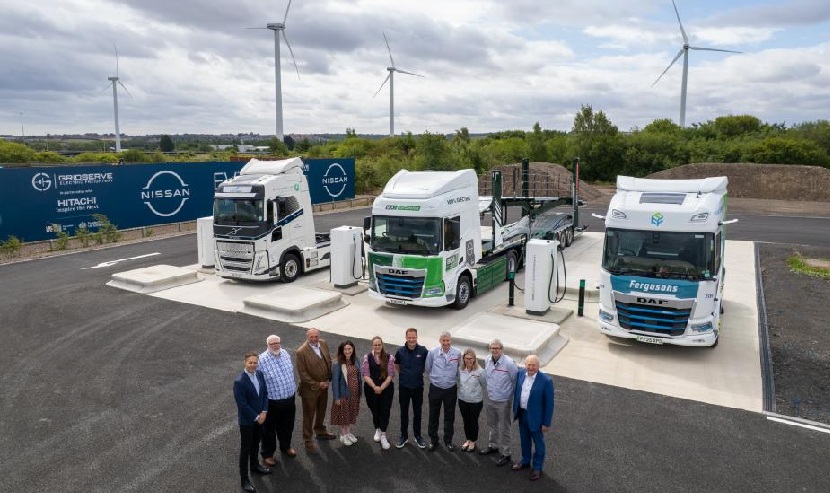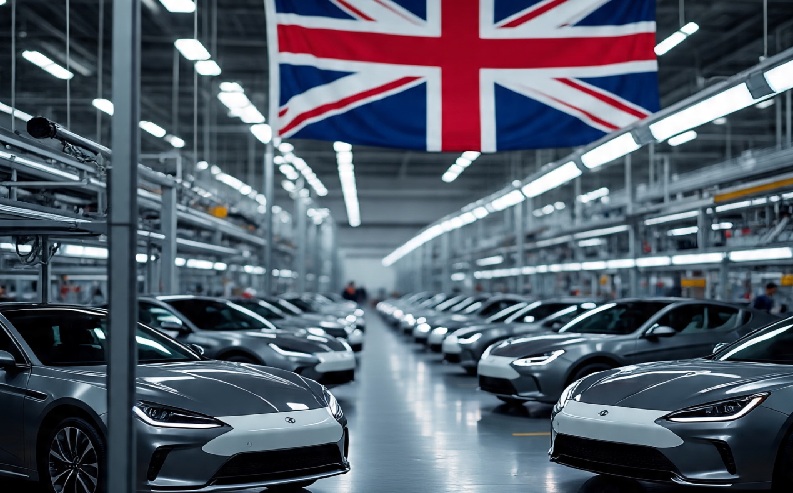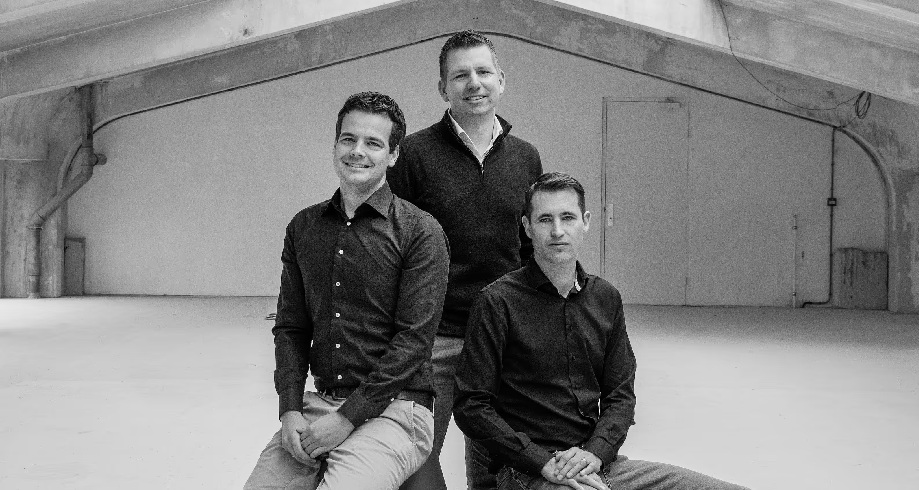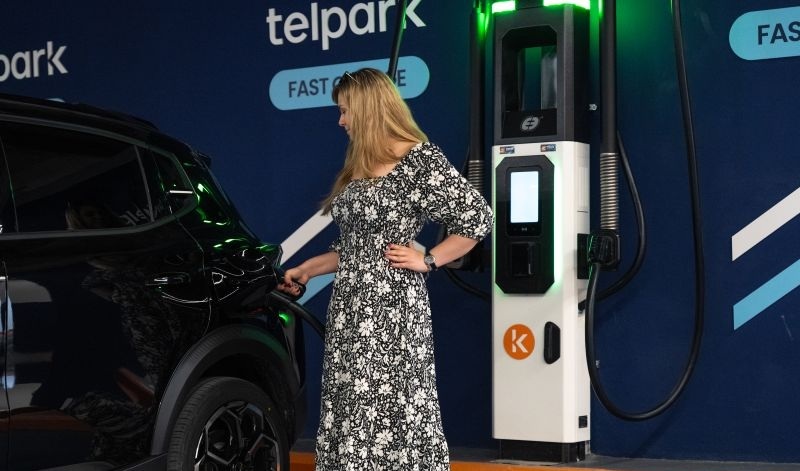An electric truck charging station that will potentially save 1,500 tonnes of CO2 a year has gone live at Nissan Sunderland Plant.
The project is a first in the UK automotive industry, establishing an electric, end-to-end supply chain that transports materials into the Nissan plant and delivers finished vehicles out.
The project is the first on site private shared charging station of its kind in the UK.
The £1.4m facility has 7 charging stations, capable of powering up to 10 eHGVs simultaneously.
It complements the plant’s EV36Zero vision for sustainable manufacturing, bringing together electric vehicles, renewable energy and battery production.
Michael Simpson, Vice President Supply Chain Management at Nissan AMIEO, says: “It is fantastic for our plant to be leading the charge to an electrified supply chain with this project. We welcome the support we’ve received from our partners to bring the charging station to life and we’re proud of what we have achieved.
“The charging station looks brilliant and is a big step forward in Nissan’s EV360 vision, which brings together electric vehicles. zero carbon energy and battery manufacturing,” he adds.
The station will support 60 UK eHGV deliveries to the plant daily and represents just the start of the plant’s journey towards electrifying its supply chain.
Simpson states: “We’re exploring further opportunities to allow other hauliers to use the charging station as well as looking at other opportunities to maximise its full potential.”
The charging station will support a fleet of 25 trucks with a charging capacity of up to 360kW.
The trucks will collect parts from Nissan’s UK supply base stretching as far afield as Derby; as well as delivering finished vehicles to and from the Port of Tyne.
That equates to more than 2.4 million kilometers travelled per year, fully electrified, saving 1,500 tonnes of CO2 annually.
Bringing together Nissan, Fergusons, Yusen and BCA, the project is part of the Electric Freightway consortium that is transforming sustainable freight logistics through deployment of eHGVs and high-power charging infrastructure.
Led by GRIDSERVE, Electric Freightway forms part of the Zero Emission HGV and Infrastructure Demonstrator programme, funded by the UK Government and delivered in partnership with Innovate UK.
UK Government Minister for the Future of Roads Lilian Greenwood says: “We’re working closely with the road freight sector to slash transport emissions, and our £200m zero emission HGV programme is helping businesses across the country to power the electrification of its fleets.”
Daniel Kunkel, CEO at GRIDSERVE, indicates: “The decarbonisation of transport logistics is much stronger and reaches far wider when done in partnership. This is why, as leaders of the Electric Freightway consortium, we are so pleased to support this UK first with Nissan and their haulage partners.”
“Depot charging is critical for the electrification of HGVs, going hand in hand with future public infrastructure developments.”
READ MORE
-
UK updates eligibility criteria for the Electric Car Grant
The UK Government sets new technical and environmental requirements that manufacturers must meet for their electric vehicles to qualify for grants of up to £3,750.
-
Deftpower raises €12.5M to boost European growth and enhance its AI-powered charging tech
Deftpower aims to make EV charging cheaper, cleaner, and smarter for drivers and CPOs, while easing pressure on Europe’s congested power grids.
-
Ekoenergetyka: Investing in EV charging at car parks is more crucial now than ever before
Public car parks are no longer just simple transit points. With the addition of chargers, they are becoming strategic hubs for electric mobility. What is Ekoenergetyka’s strategy?










